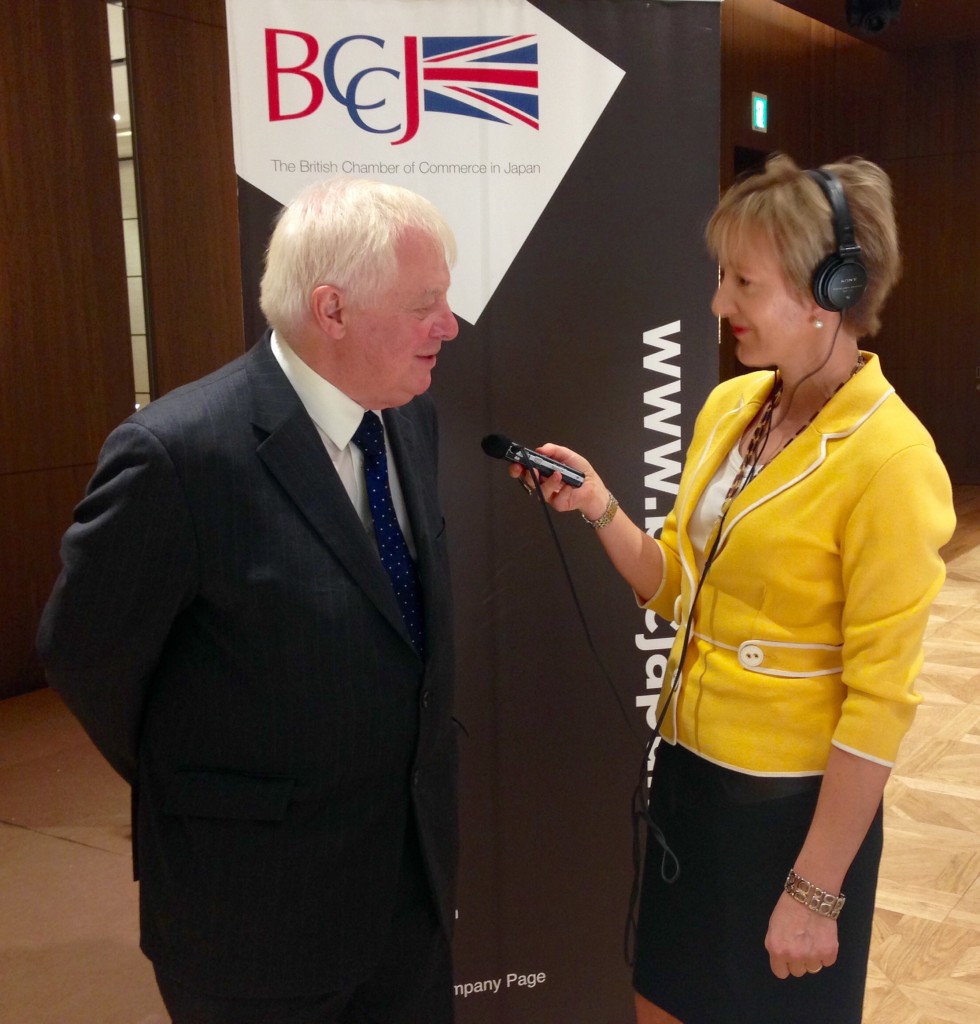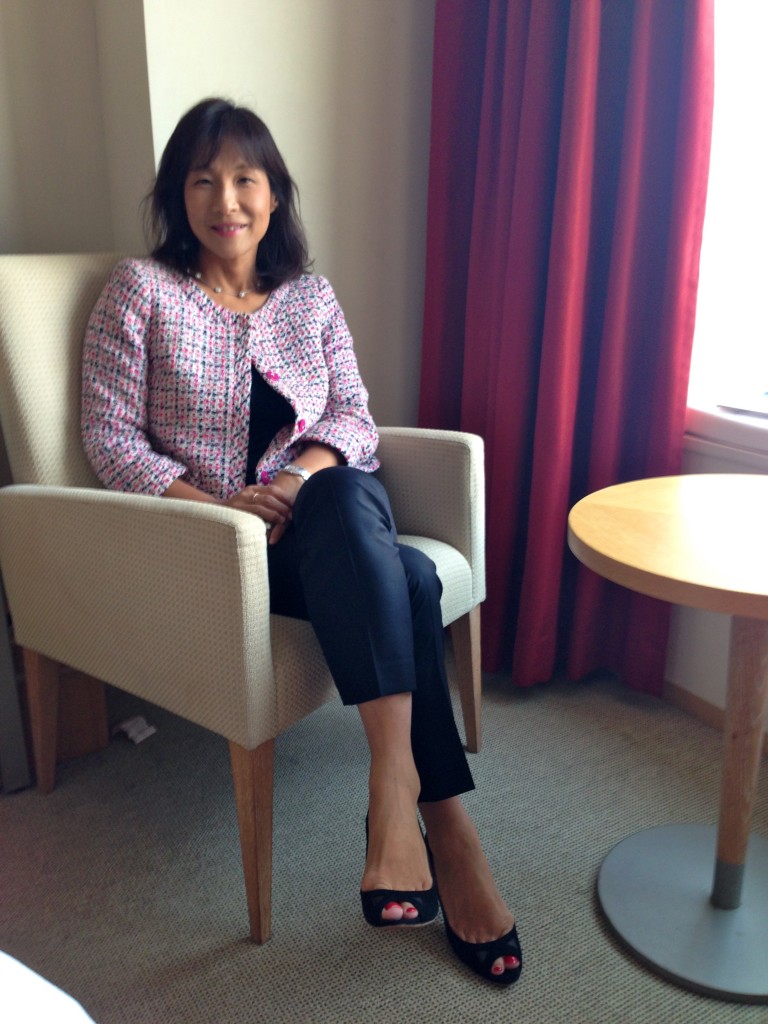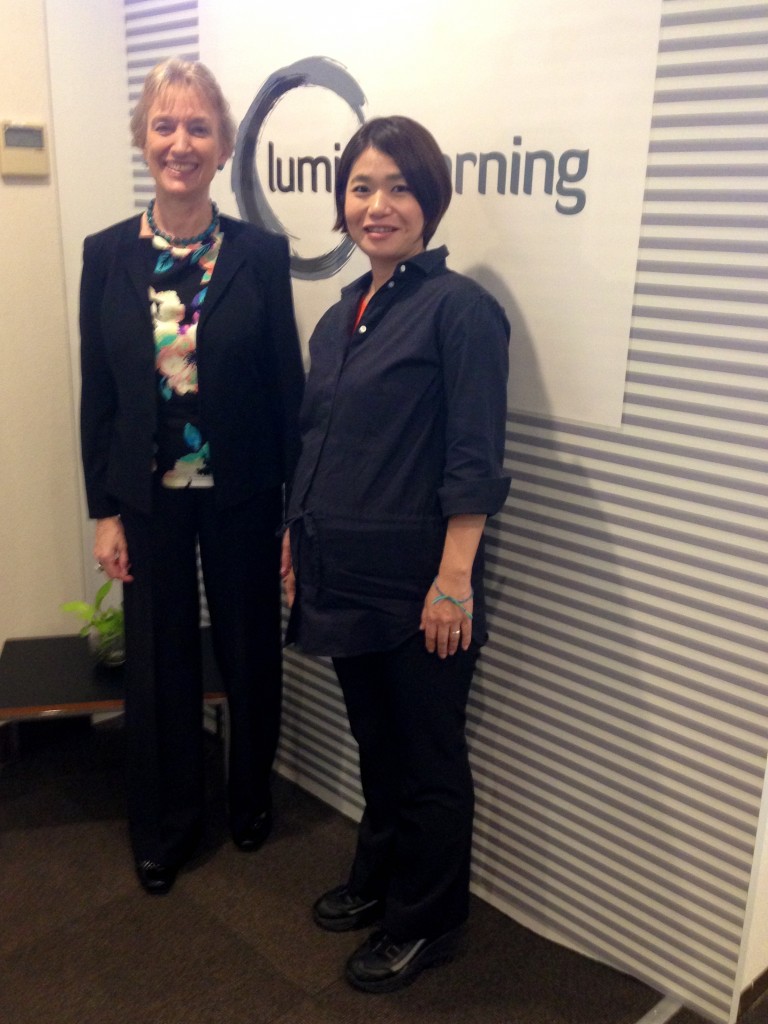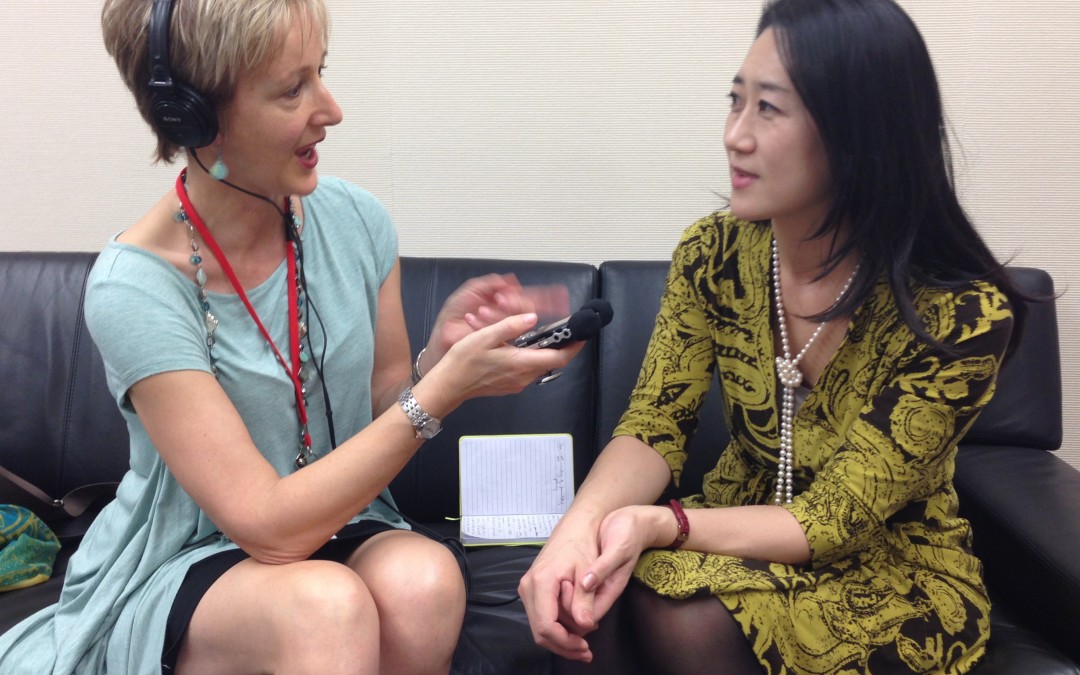By Alison van Diggelen, host of Fresh Dialogues
Japan is facing a double whammy: shrinking population and massive labor shortages. For some experts, the solution is simple: unleash the power of women.
Tonight on the BBC’s World Service, Jon Bithrey, host of Business Matters aired my report from Japan and we discussed the enormous challenges the country faces.
Prime Minister Abe’s government has been taking baby steps in Womenomics with some success, but in the longer term, what more needs done to change deeply entrenched cultural norms? In August, Japan’s government passed legislation mandating that Japanese companies with over 300 employees disclose their diversity statistics and goals in 2016. The Prime Minister’s ambitious target is for 30% of leadership positions in business and government to be filled by women by 2020.
What is Womenomics and why could it become a template for other Asian countries? I went to Tokyo to investigate for the BBC World Service…
 .
.
A version of this report aired on the BBC’s Business Matters on December 31, 2015. Listen to the BBC podcast here
Alison van Diggelen: I’m here in Tokyo to explore the promise of Womenomics, Prime Minister Abe’s plan to increase the country’s GDP by up to 15% by tapping its most underutilized resource. That is: Japanese women.
What exactly is Womenomics?
The term was coined by Kathy Matsui in a Goldman Sachs report outlining the economic potential of closing the gender gap. Japan faces a time bomb of a rapidly shrinking and ageing population; and a low female labor participation rate (although it has increased recently, many female workers work only part-time). This year, Prime Minister Abe, perhaps in desperation, is rebooting Womenomics and has set a 30% leadership goal for women in business and government.
[Atmos: Tokyo Metro announcements, doors closing, and passenger hubbub]
My first stop was the Gender Equality Bureau at the Ministry of Foreign Affairs. I asked Rui Matsukawa who’s Director of the Gender Mainstreaming Division: what’s the promise of Womenomics?

.
Rui Matsukawa: Womenomics’ essence is unleashing the talents of women in quality and quantity and make that help for the prosperous future of Japan. If Japan can change, that’ll be good prospects for the other countries. My conviction is: Japan will change is a very constructive way…where each individual is given the opportunity to fully express his or her own potential.
She points out that diversity is a great source of innovation.
And that’s one of Japan’s biggest challenges today.
Womenomics policy faces an uphill struggle: Japan’s cultural norms, and its male-centered, long and inflexible working hours.
I met with Elizabeth Handover, a Brit who’s lived in Japan for decades. She’s cofounder of the Women’s Leadership Development Center, in Tokyo.
Elizabeth Handover: Japan is struggling right now…some companies are still stuck in a Victorian hierarchy era…It’s that hierarchy that women get trapped in…
Alison van Diggelen: How do you think the PM’s goals will help?
Elizabeth Handover: One thing that’s really powerful in Japan is that companies don’t like to be “shamed and blamed”, so when the appalling statistics come out about how many female managers they’ve got, I think that’ll be a big influence for them to make changes.
I caught up with the former Governor of Hong Kong, Chris Patten and he shared a global perspective.
[Atmos: breakfast meeting audio]
 .
.
Chris Patten: I think it’s a very good idea that a PM should be so determined to increase the number of women in leadership positions. It’s not just a problem in Japan… I think it’s a big issue everywhere.
van Diggelen: What do you think is the PM’s greatest challenge? Do you think it’s a societal cultural shift that needs to happen?
Patten: Some of the changes that he has to cope with are common to other societies as well, but plainly, the main issue in Japan – as elsewhere – is the attitude of men.
 .
.
Yumiko Murakami is Head of the Tokyo Center of the Organization for Economic Cooperation and Development. She cites Akira Matsumoto, the CEO of Calbee, a Japanese snack company, as being a male champion of diversity. She’s hopeful that the mandated release of diversity stats will spur change.
Yumiko Marakami: Japanese society is very a homogeneous society…there is a very strong cultural pressure to follow the herd.
Murakami is concerned about shrinking population and is convinced that Japan’s policy will have global implications.
Yumiko Murakami: Japan is facing this humongous time bomb – companies don’t have enough people to hire, it’s really hurting the bottom line. China is going to face the same future…Korea is exactly the same thing. If we succeed in Japan today, maximizing the talent pool, other countries they are going to get good practice policy lessons.
But some female executives in Japan feel more could be done: like addressing the childcare shortage and changing the existing tax laws, which discourage married women working full time.
[Atmos: Tokyo Metro announcements, doors closing, hubbub]
 .
.
Before leaving Tokyo, I took the Metro to meet with Aya Usui, a senior consultant at Lumina Learning, a leadership training business. She’s expecting her third child and commutes 4 hours a day.
Alison van Diggelen: Are you encouraged by PM Abe’s commitment to Womenomics?
Aya Usui: To tell the truth…not really…
Alison van Diggelen: What would you like to see him do?
Aya Usui: I’d ask him to invest more money and time to develop female leadership because many females have a lot of talent and a lot of potential, but they’re not used enough…they’re killing their possibility…If we can achieve full potential it’s really a wonderful world this world becomes…
That’s the promise of Womenomics: a wonderful world where everyone achieves their full potential. The world will be watching in 2016 to see if Prime Minister Abe’s shaming and blaming will work.
***
To learn more about Womenomics and gender equality, listen to the BBC Business Matters Last Podcast of 2015 and check out the Fresh Dialogues Inspiring Women Series.
Many thanks to Elizabeth Handover of Lumina Learning and fellow Scot, Lori Henderson and her team at the British Chamber of Commerce for helping facilitate the interviews in Tokyo.




